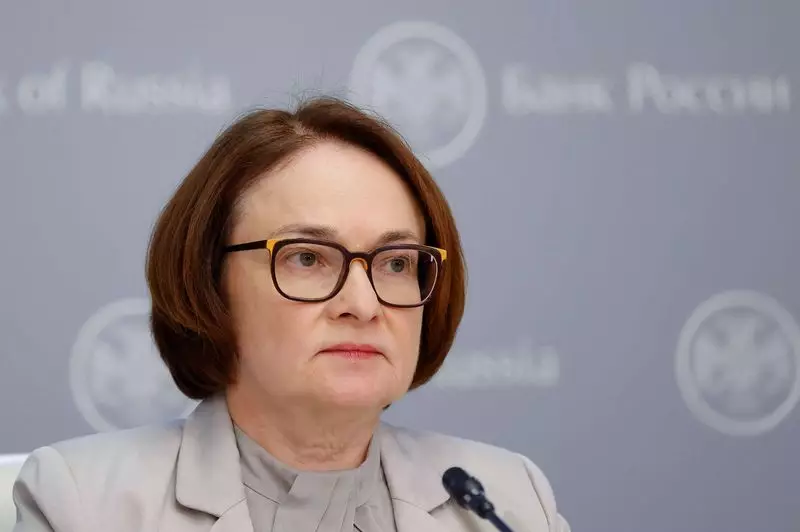Russia’s central bank made a significant move by increasing its key interest rate by 200 basis points to 18% on Friday. This decision was driven by concerns about high inflation and an overheated economy. As a result, the cost of borrowing has reached its highest level in more than two years. The central bank also revised its inflation forecast for 2024, raising it to 6.5-7.0%. Additionally, it hinted at the possibility of further rate hikes in the future.
The central bank’s decision to raise interest rates was influenced by the fact that inflation has been accelerating and is significantly higher than what was predicted earlier in the year. The demand for goods and services continues to outstrip supply, leading to inflationary pressures. The central bank believes that tighter monetary conditions are necessary to bring inflation back down to its target of 4%.
The Bank of Russia expressed concerns about the upward deviation of the Russian economy from a balanced growth path. Factors such as labor shortages and the expansion of retail and corporate lending have contributed to the high inflation levels. Despite raising its GDP growth forecast for 2024, the central bank did not explicitly mention the term “overheating” to describe the current state of the economy.
The market had anticipated the rate hike, according to a Reuters poll of economists. However, there were dissenting views within the Russian elite, with some favoring a more dovish approach. The central bank’s next rate decision is scheduled for September 13, and it may consider further rate increases depending on economic conditions. Inflation remains a key concern, with the current rate standing at 9.18% and expected to stay above the central bank’s target of 4% for the rest of the year.
The central bank’s decision to raise interest rates reflects its commitment to combating high inflation and preserving macroeconomic stability. By tightening monetary policy, the central bank aims to bring inflation back down to its target levels and prevent the economy from overheating. However, there are concerns about the impact of higher borrowing costs on businesses and consumers, as well as the overall growth trajectory of the economy.
Russia’s central bank interest rate hike is a response to the challenging economic conditions facing the country. While the decision was necessary to address high inflation and an overheated economy, there are potential risks and uncertainties associated with tighter monetary policy. It will be crucial for the central bank to carefully monitor economic developments and adjust its policy stance accordingly to support sustainable growth in the future.

